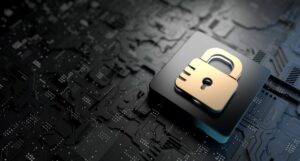 A few weeks ago, I was asked to do a presentation for individuals on simple tasks they could do to protect their personal information. It is commonly known that cyber security has become a critical concern as hackers and cybercriminals continuously devise new ways to exploit vulnerabilities and compromise our information. Whether you’re a casual internet user, a business professional, or a parent, understanding the fundamentals of cyber security is essential. Based on the content of the presentation I did last month, below are some practical tips and best practices to protect yourself and stay safe online.
A few weeks ago, I was asked to do a presentation for individuals on simple tasks they could do to protect their personal information. It is commonly known that cyber security has become a critical concern as hackers and cybercriminals continuously devise new ways to exploit vulnerabilities and compromise our information. Whether you’re a casual internet user, a business professional, or a parent, understanding the fundamentals of cyber security is essential. Based on the content of the presentation I did last month, below are some practical tips and best practices to protect yourself and stay safe online.
- Create Strong and Unique Passwords – A strong password is the foundation of your online security. Use a combination of uppercase and lowercase letters, numbers, and special characters. Avoid using common words or easily guessable information such as your birthdate. Furthermore, never reuse passwords across different accounts. Consider using a password manager to securely store and generate complex passwords.
- Enable Two-Factor or Multi-Factor Authentication (MFA) – Two-factor authentication adds an extra layer of security by requiring users to provide an additional piece of information, usually a code sent to their mobile device, in addition to their password. Enable 2FA whenever possible, as it significantly reduces the risk of unauthorized access even if your password is compromised.
- Keep Software Up to Date – Regularly update all devices that interact with the internet, including your operating system, web browsers, software applications, cell phones, and all IoT devices. These updates often contain security patches that address known vulnerabilities. Enable automatic updates whenever possible to ensure you have the latest security features.
- Be Cautious with Emails and Phishing Attacks – Emails are a common vector for cyber-attacks, especially phishing scams. Be wary of suspicious emails, especially those requesting personal information or urging immediate action. Avoid clicking on links or downloading attachments from unknown sources. Verify the sender’s identity and double-check the email address for any discrepancies before responding or providing any sensitive information.
- Secure Your Wi-Fi Network – Ensure your home Wi-Fi network is protected with a strong, unique password. Change the default administrator credentials of your router to prevent unauthorized access. Additionally, consider enabling encryption, such as WPA2 or WPA3, to encrypt your wireless communications and make it more difficult for attackers to intercept your data.
- Use Secure Networks and Websites – Avoid using unsecure public Wi-Fi networks for sensitive activities, such as any activity that requires a username or password. Public networks are often unsecured and vulnerable to interception. Whenever possible, use a virtual private network (VPN) to encrypt your internet traffic and provide an additional layer of security.
- Regularly Back Up Your Data – Backing up your data is crucial in case of a ransomware attack, hardware failure, or other unforeseen events. Store backups in a secure location, either offline or on a cloud storage service with strong encryption. Test your backups periodically to ensure they are functioning properly.
- Be Mindful of Social Media Privacy – Review and adjust your social media privacy settings to control who can see your posts, photos, and personal information. Avoid sharing sensitive details publicly, such as your address, phone number, or birthdate. Be cautious about accepting friend requests or connections from unknown individuals.
- Educate Yourself and Stay Informed – Stay updated on the latest cyber threats, scams, and security best practices. Follow reputable online sources, subscribe to security newsletters, and attend webinars or seminars to enhance your knowledge. Awareness and education are crucial in identifying potential risks and taking appropriate preventive measures.
Contact Us
Cyber security is a shared responsibility. By implementing these fundamental practices and adopting a security-conscious mindset, you can significantly reduce the risk of falling victim to a cyber-attack. Remember to stay vigilant, exercise caution while navigating the digital realm, and regularly reassess and improve your security measures. Protecting yourself in the digital age requires ongoing effort, but the peace of mind and safety it brings are invaluable.

